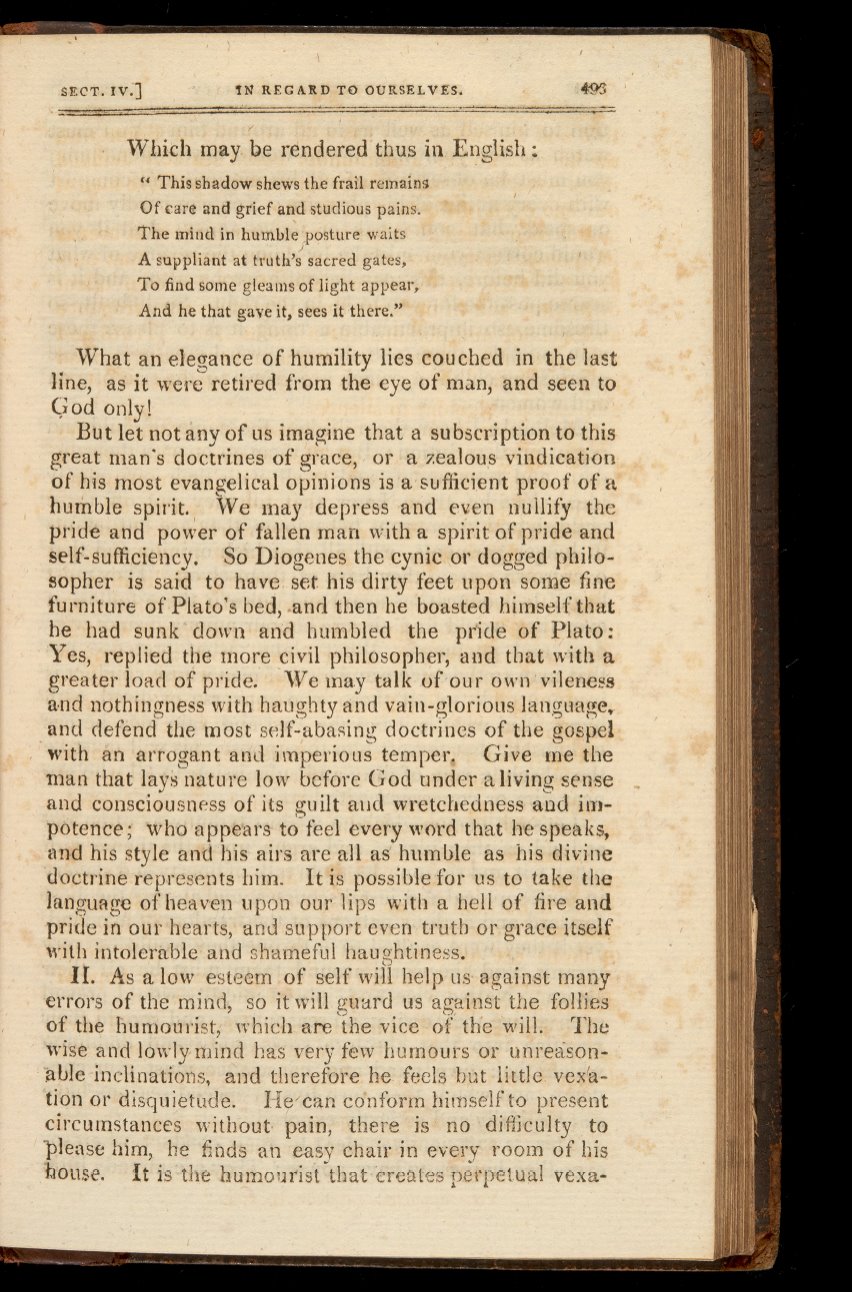

SECT.
IV.]
SN
REGARD TO OURSELVES.
4
Which
may be
rendered
thus
in
English
:
"
This
shadow
shews
the
frail remains
Of
care and
grief and
studious pains.
The
mind
in
humble posture waits
A suppliant at
truth's
sacred gates,
To
find some gleams
of
light appear,
And
he
that
gave
it,
sees
it
there."
What
an
elegance
of
humility lies couched
in
the last
line, as
it
were
retired
from the
eye
of
man,
and
seen to
God
only!
But let not
any
of
us
imagine
that
a
subscription to
this
great
man's doctrines
of
grace,
or
a zealous
vindication
of
his
most evangelical opinions
is
a
sufficient
proof
of
a
humble spirit. We may depress
and
even nullify the
pride
and power
of
fallen
mari with a
spirit of pride
and
self
-
sufficiency. So
Diogenes the
cynic or dogged
philo-
sopher
is
said to
have set his
dirty feet upon
some fine
furniture of Plato's
bed,
and
then
he
boasted himself
that
he had sunk down
and humbled
the pride
of
Plato:
Yes, replied
the more
civil
philosopher, and
that
with
a
greater
load
of
pride.
We
may
talk
of
our
own
vileness
and nothingness
with
haughty and vain-glorious language,
and
defend the most self
-
abasing doctrines
of
the
gospel
with
An
arrogant
and imperious temper.
Give
me
the
man
that
lays
nature
low
before
God under
a
living
sense
and consciousness
of
its
guilt
and wretchedness and
im-
potence;
who
appears
to
feel
every
word
that
he
speaks,
and
his style
and
his
airs are all
as
humble
as his
divine
doctrine
represents
him.
It
is
possible
for
us to
take the
language of
heaven
upon our lips
with
a hell
of
fire
and
pride
in
our hearts,
and
support
even
truth or grace itself
with
intolerable
and shameful
haughtiness.
iÌ.
As
a
low
esteem
of
self
will
help
us
against
many
errors of
the mind,
so
it
will
guard
us
against the
follies
of
the
humourist,
which
are the
vice
of
the will.
The
wise
and lowly mind has very
few
humours or
unreason-
able
inclinations, and
therefore
he
feels
but little
vex'a-
tion or disquietude.
He'can
conform himself
to
present
circumstances without pain,
there
is
no difficulty to
please
him, he finds
an easy
chair
in
every
room
of
his
house.
It
is
the
humourist
that
creates perpetual
vexa-

















